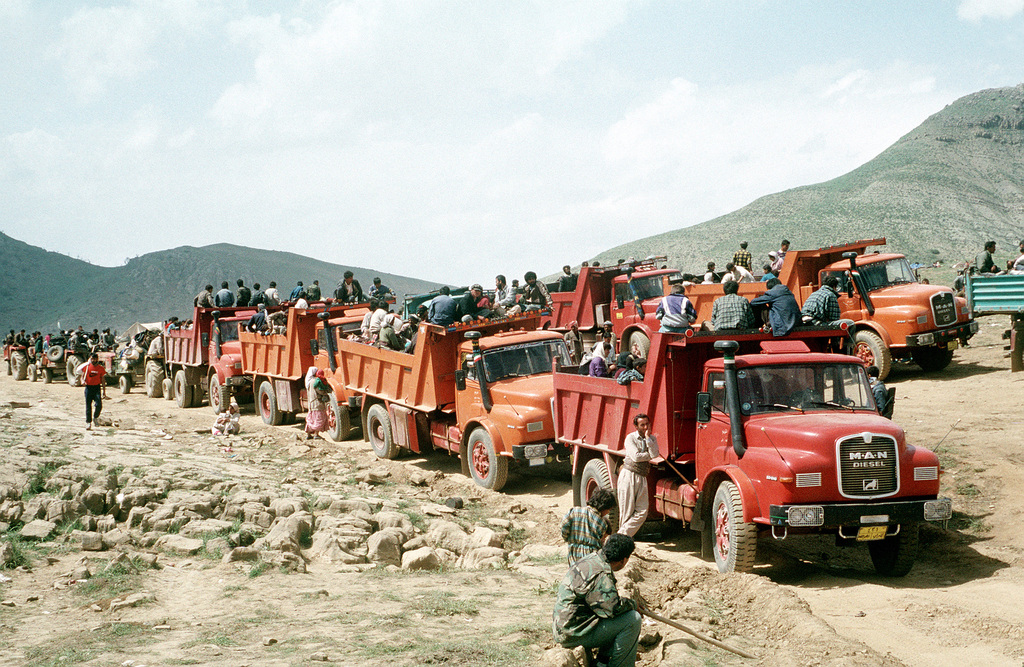On November 3, McGill hosted a talk between Filippo Grandi, the incumbent United Nations High Commissioner for Refugees (UNHCR), and Ketty Nivyabandi, a Burundian human rights activist and refugee in Canada. The discussion, which focused primarily on the evolving role of women in international displacement crises, was moderated by Sally Armstrong, an award-winning author, journalist, and McGill alumna.
In 2015, Ketty Nivyabandi left her home in Burundi, a country that became riddled with violent conflict after President Pierre Nkurunziza bid for office for the third time. Prior to being displaced, Nivyabandi was involved in protests and had become a leading figure in her community. She was forced to leave as a result of her activism, and currently resides in Canada while advocating for greater women-led peace initiatives.
“I would not be alive if I had not fled,” Nivyabandi stated when Armstrong asked what drove her to flee Burundi. As a woman, the fear of being abducted, raped, and killed by militia was added to the struggle of devising a viable escape plan. “We leave because our countries are on fire,” she affirmed. “If I am here today, it is because I had no choice.”
Nivyabandi explained that she realized she had become a refugee when she had to give her passport in to Canadian authorities, which left her feeling disempowered and violated. She likened the sensation to that of losing a mother, and revealed that she still does not have her passport to this day.
Following her testimony, the activist emphasized the importance of preventing displacement crises at their root. Early warning signs, she argued, should be given more attention, in order to increase chances of minimizing outbreaks and displacement. The origins of conflicts in Burundi, for instance, can be traced back to the alteration of the Constitution as well as a continuous reduction of free speech. These signals are felt strongest by women, Nivyabandi claimed, given that they directly affect the communities they care for. Paying greater attention to their suggestions should be encouraged as a way to more successful conflict prevention.
Filippo Grandi agreed with Nivyabandi’s bottom-up, female-centric approach to conflict prevention. The 11th UNHCR, who took office in early 2016, also mentioned that uprooted women carry the responsibility of rebuilding systems of support for their families and communities. Their interest is thus not in fighting, but in rapidly re-establishing peace. Peace agreements, as a result, have higher prospects of longevity when women’s accounts are given importance. Grandi specified that while “giving voice to the voiceless is never easy,” it is an issue he hopes to address during his five-year term.
The tools women require to establish themselves as leaders are rarely placed within their reach, Nivyabandi underlined. Women’s essential needs, such as the provision of sanitary pads in camps, are rarely integrated into traditional displacement aid solutions. “How can you be a leader if your basic needs are not met?” Nivyabandi asked.
Female empowerment is rarely a priority in current high-profile displacement crises, Grandi acknowledged. In Myanmar, where the Rohingya are victims of ethnic cleansing, the urgency of the situation is such that relief efforts are focused exclusively on saving lives. Grandi described the crisis as being the most severe he has ever witnessed. “Children did not even show emotion when they told us of their parents being killed in front of them,” he recalled. The combination of these psychological and physical traumas calls for the provision of considerable financial means from the part of humanitarian organizations, which monopolizes the attention of international agencies. As such, female agency is not their primary concern.
Grandi nonetheless closed the talk on an optimistic note. Given that the livelihoods of 65.6 million globally displaced persons are at stake, the High Commissioner recognized that the United Nations needs to “look ahead and make up for past mistakes” by engaging in more efficient campaigns directed at root causes and women. Achieving this will give UNHCR a “better chance” of alleviating human suffering caused by forced displacement. “It’s progress,” the High Commissioner concluded.








